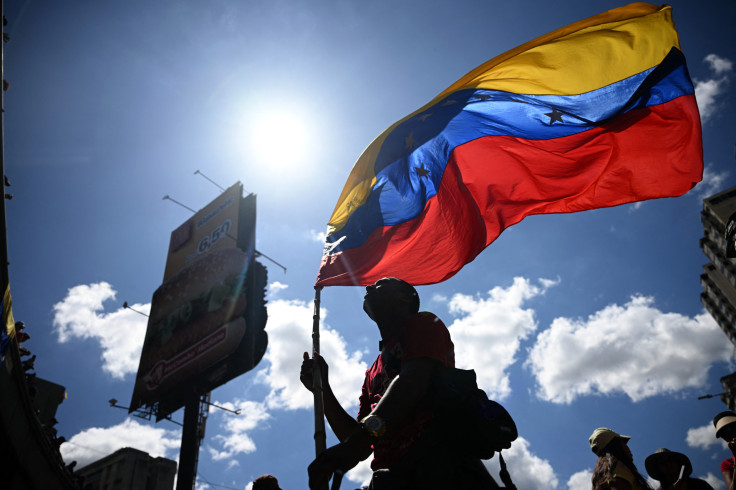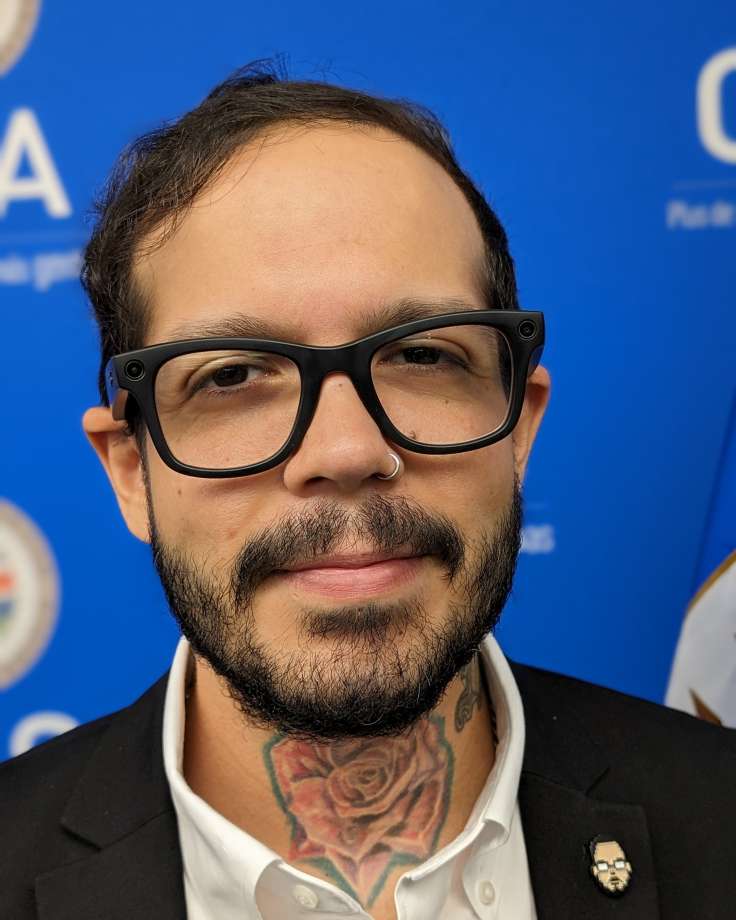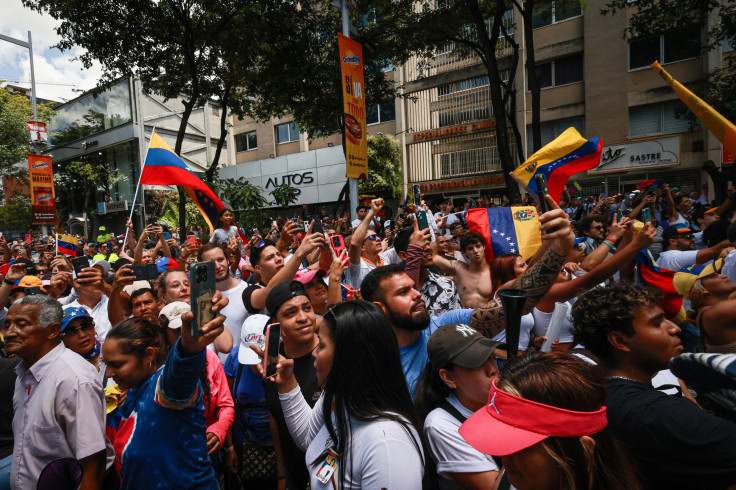
The upcoming few days in Venezuela are expected to be some of the most uncertain in its recent history, not an easy feat for a country that has been engulfed in political turmoil for the better part of the 21st century. On Friday, January 10, not one but two men have voiced their intention to take office as president, both of them adamant that they won the election in July.
On one side is Nicolás Maduro, who has ruled Venezuela since 2013. Ever since, the country has gone through hyperinflation and a mass exodus, amassing accusations of crimes against humanity and links to international drug cartels in the meantime.
On the other hand is Edmundo González Urrutia, who took the baton from María Corina Machado to lead the Venezuelan opposition after she was banned by the Government-friendly Venezuela's judiciary from holding public office for 15 years for "participating in the corruption scheme orchestrated by the usurper Juan Guaidó," the opposition leader who sought to take the presidency from Maduro back in 2019.
Despite claims from the country's opposition that González won the July 28 by a large margin and the presentation of supporting ballots, the National Electoral Council declared incumbent Maduro as the victor, results that have been met by widespread criticism, with opposition leaders accusing the Maduro government of electoral fraud and lack of transparency. Shortly after the announcement by the Electoral body, González went into exile to Spain, detailing credible threats to his life. He has remained there until recently.
But now, as January 10 approaches, González has vowed to return to Venezuela, even though the Maduro regime has put out a $100,000 reward for his arrest. Little else is known about González' return, other than the fact that he is set to be accompanied by nine former Latin American presidents, including Andrés Pastrana of Colombia, Felipe Calderón of Mexico and Jorge Quiroga of Bolivia.
"Whoever dares to predict the actual outcome of what will happen these upcoming days simply does not understand the political dynamics of the country because if anything has characterized Venezuela, it is that things change minute by minute," Melanio Escobar, Venezuelan journalist, Human Rights activist and political analyst, told The Latin Times. "Even making projections for a single day often means hitting the wrong target."
Escobar, who like the U.S. believes González won the election, sat down with The Latin Times to provide insights into the current Venezuelan political climate, including his two cents on the regime and the opposition's strategies at the moment.
This interview has been edited for brevity and clarity

The Latin Times: Walk us through what could happen on Friday January 10 in Venezuela?
Melanio Escobar: Constitutionally, what should happen is that president-elect, Edmundo González Urrutia, assumes the presidency. However, when we look at the current landscape of events, there is a 50/50 chance that this will happen. It has been announced that various former presidents from the region will support Edmundo González Urrutia as he enters the country. At the same time, we see that Venezuela is currently under a police and paramilitary state orchestrated by Nicolás Maduro, who's looking to claim the presidency through a stolen election achieved by blood and force. We also have to wait to see whether the government will bear the political cost of repressing a mass of citizens demanding that their votes be respected.
Right now, anticipation is what's on the table, and we are following events minute by minute to try to decipher where today is headed and what will happen tomorrow.
The Latin Times: A lot of people, Venezuelans and non-Venezuelans, feel like they've seen this scenario before in the country. In your opinion, what's different this time around to, say, what happened with Juan Guaidó?
Melanio Escobar: There are several reasons why this is different from previous processes we've experienced in Venezuela, starting with the most basic one: the protagonists are different. María Corina Machado is not Juan Guaidó, and Juan Guaidó wasn't Leopoldo López, and so on. Each has their own characteristics and had their own popular support at different times and in different ways.
Taking a deeper look, María Corina Machado has orchestrated a popular movement that managed to organize primary elections with over 3 million participants back in 2023. In other words, more people voted in the opposition primaries to elect María Corina Machado as a candidate than those that voted for Maduro in the July 28 presidential elections. This shows the opposition leader's pull is far stronger than anything we've seen in recent years. Moreover, the organization led by María Corina, her team, and other opposition members like Delsa Solórzano and Freddy Superlano has brought us to where we are today: with irrefutable evidence of the July 28 victory backed by over 7.5 million votes, currently safeguarded in Panama.
In the past, we didn't have this number of votes. And you have to take into account that the number would have been even higher if Venezuelans abroad had been allowed to participate. Having the records, the votes, and witnessing people defending them on July 29 and 30— tearing down images of the Chávez regime in the process— marks a significant difference from any past strategy. We hadn't experienced anything like the popular uprising of those two days before. We were used to going to marches and rallies that were repressed and resulted in isolated clashes.
Even when comparing Edmundo González with Juan Guaidó you find differences. Guaidó assumed the presidency under a constitutional article interpreted due to a power vacuum caused by Maduro's fraud at that time. But now, we have 7.5 million votes from a presidential election conducted against all odds. That's incomparable.

The Latin Times: Would you say the opposition is being more strategic this time around?
Melanio Escobar: I have no doubt there is an excellent strategy behind the democratic movement, beginning with the primaries and even earlier. Each victory has built upon the previous one, creating milestones that have brought us to this point. I'm also confident there is planning beyond January 10. When planning for victory, you must also prepare for every possible defeat scenario. I believe María Corina Machado and her team have plans beyond tomorrow and the day after. If things don't go as planned, there will likely be additional steps to reach the milestones needed for freedom.
I believe that even Nicolás Maduro's potential imposition as president represents a setback for the regime. While they may believe their impunity will shield them, clinging to power might ultimately become the nail in the coffin for the Maduro regime — maybe not tomorrow, not the day after, but soon. I don't foresee six more years of Maduro in power under the current conditions, and I believe María Corina Machado has considered this in her analyses and planning. She understands that the recent actions of Chavismo like kidnappings, persecution and diplomatic breakdowns will eventually backfire.
The Latin Times: Given this context, is the regime's strategy to radicalize and intimidate?
Their only remaining tool is instilling fear through psychological tactics because they, too, know the true results from July 28. They know that even in military voting stations Maduro lost overwhelmingly to Edmundo González Urrutia. They've lost their base. Their supporters didn't vote, and they lack mobilization and even military backing from mid- and lower-ranking officers. All they have left are their fiercest police and paramilitary forces to intimidate and begin abducting remaining leaders in Venezuela.
This is a psychological battle—a campaign of terror aimed at convincing citizens they lack the power to oust the 15 criminals holding Miraflores (the presidential palace in Venezuela) hostage. If the regime truly controlled the Armed Forces as in the past, they wouldn't need to publicly distribute rifles to civilians, communal councils, and collectives. The publicized arming of untrained civilians is more about psychological warfare than real military strategy.
Lastly, what is known about Carlos Correa, director of the NGO Espacio Público, who was abducted this week?
At this time, we have no information about Carlos Correa's whereabouts. His wife filed a habeas corpus petition at the Palace of Justice, but it went unanswered. Yesterday, Minister Diosdado Cabello listed political and human rights activists who might be arrested in the coming hours due to their involvement in civic actions, but Carlos Correa was not mentioned. Currently, neither his family, his organization, his colleagues, nor his friends know his location. We continue to demand the state comply with the law, provide information about his whereabouts, and ultimately release Carlos Correa, who has committed no crime.
© 2025 Latin Times. All rights reserved. Do not reproduce without permission.






